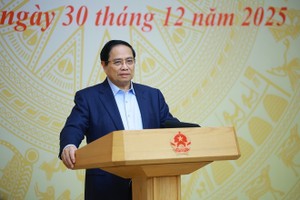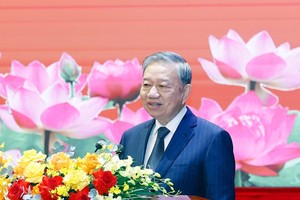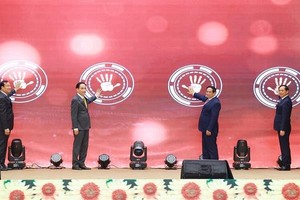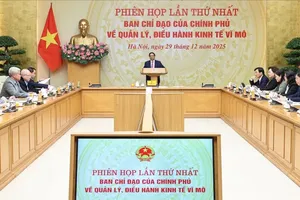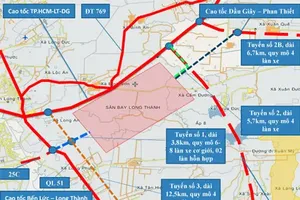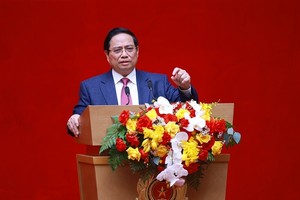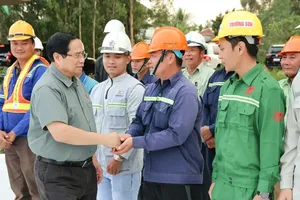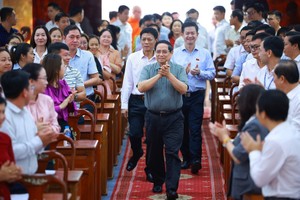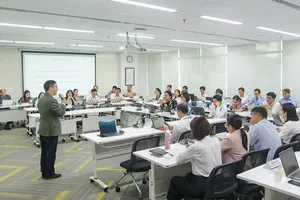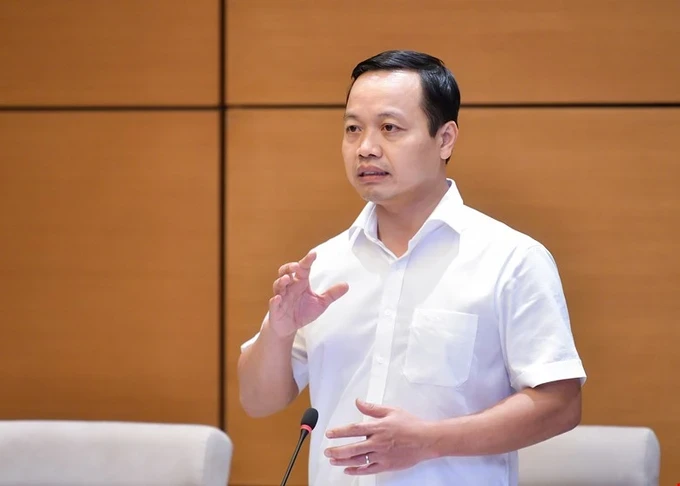
At a review session chaired by Deputy Minister of Justice Tran Tien Dung on September 26, participants unanimously agreed that after fifteen years of implementation, the 2008 Atomic Energy Law has exhibited certain inadequacies and limitations in terms of regulatory requirements and alignment with newly enacted legislation.
Moreover, some provisions have proven to be impractical and have failed to keep pace with advancements in nuclear science and technology. Consequently, an amendment to the law is deemed essential.
Regarding policies related to nuclear power development, the Ministry of Industry and Trade has requested the drafting agency, who is the Ministry of Science and Technology, to supplement and clarify provisions governing the location, design, and licensing of nuclear power plants, with a special focus on the issuance of operational licenses.
Currently, the Ministry of Industry and Trade is authorized to grant trial operation licenses for nuclear power plants following consultations with the Ministry of Science and Technology and the National Nuclear Safety Council. However, the Ministry of Science and Technology is now proposing that this authority be vested solely in its own hands.
The development and promulgation of a master planning piece for the application of atomic energy was another focal point of the discussions. The Vietnam Chamber of Commerce and Industry asserted that while such a plan can serve as a guiding framework to attract both public and private investment, it should not be construed as a prerequisite for licensing.
In other words, the master planning for the application of atomic energy should primarily play an orienting role, allowing enterprises to propose projects that fall outside its scope and to obtain licenses provided they meet all the requisite conditions.
In his concluding remarks, Deputy Minister Tran Tien Dung concurred with the necessity of amending the Atomic Energy Law. He emphasized the complexity of this legislation and its implications for the functions and responsibilities of numerous ministries and agencies.
Accordingly, the drafting agency was instructed to conduct a thorough review of the proposed policies in conjunction with other relevant legal documents, such as the Civil Defense Law, the Public Investment Law, and the Investment Law, to ensure coherence and consistency within the legal system.
The Ministry of Science and Technology has proposed five policy directions for the amendment of the Atomic Energy Law:
- promoting the development and socialization of atomic energy applications;
- ensuring radiation safety, nuclear safety, and security, as well as tiered state management;
- preventing the proliferation of nuclear weapons;
- strengthening the management of radioactive waste, spent radiation sources, and spent nuclear fuel;
- responding to radiation emergencies, nuclear accidents, and civil liability for nuclear damage.
